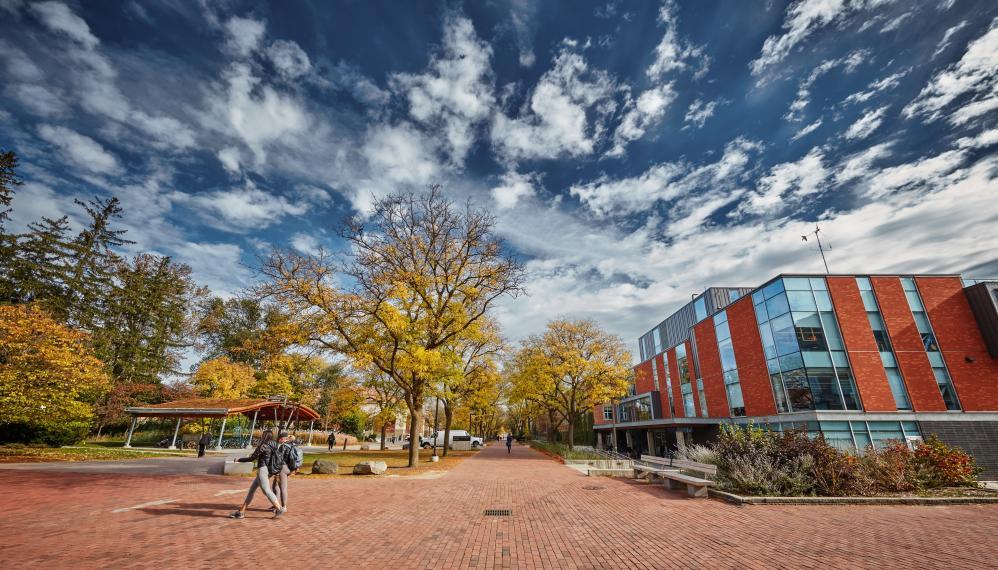New PSEER Projects Improve Teaching

Each year, the Physical Science & Engineering Education Research (PSEER) Centre provides funding to new pedagogical research projects in computing, mathematics, physical sciences and engineering education research to improve teaching and learning for U of G students. Researchers in the College with innovative ideas were invited to submit proposals for awards up to $8,000. The projects were funded following a review by an internal committee.
"In light of the challenges through the past year and the increased reliance on technology, combined with a need for students to feel connected and engaged as they look to return to campus, these three projects will help build on those opportunities and challenges," says Karen Gordon, Associate Dean (Academic) for CEPS. "Every year, we fund research projects that benefit education at the University of Guelph in new, novel ways. It's important for us as educators to continuously look for ways to improve life and student learning."
Project Summaries
Judi McCuaig – A Framework for Automated Task Decomposition and Work Planning
Dr. Judi McCuaig, associate professor in the School of Computer Science, will receive $8,000 from PSEER to identify the algorithm that can create the initial work plan for a proposed conversational agent (chatbot) to assist students in creating a work plan for assignments and projects. This research project recognizes neurodiverse learners or those whose who may benefit from different learning models, such as those with Autism Spectrum Disorder (ASD), who may have difficulty breaking down and completing a large project. This project is also funded through the Scholarship of Teaching and Learning (SoTL).
The chatbot has the capability to compose an initial plan for the completion of a specific assignment or project, individualized using the student’s responses to the chatbot questions. The chatbot will also provide an ontology to the user by describing the key elements of the assignment, specific to those needing assistance on computer programming assignments.
The outcomes of this chatbot are based on the user’s engagement and self-efficacy, providing the student with academic supports and can result in an improvement of self-achievement.
Project results will be presented at events and internal seminars including the Educational Data Mining conference, Teaching and Learning Innovations Conference, Innovation and Technology in Computer Science Education Conference, or International Conference of the Learning Sciences, among others.
Dr. Nagham Mohammad, Dr. Mihai Nica, Dr. Kimberly Levere - Promoting Engagement Via Engaged Mathematics Labs and Supportive Learning
Drs. Nagham Mohammad, Mihai Nica, and Kimberly Levere, faculty in the Department of Mathematics and Statistics, will receive $4,000 for their proposed strategy to incorporate cognitive and effective engagement strategies into learning while addressing the challenges of doing so in a large class environment.
They plan to transform weekly labs and seminars into an “Engaged Mathematics Lab,” where professors and student assistants will support students in completing their assignments. Content in the assignments will range from basics to problem solving, to exploratory in nature. They will be performed in groups of two to three to keep each other engaged and feeling supported. The presence of a professor facilitating these labs will promote student comfort level and increase their willingness to ask for help.
The second objective is to conduct a survey of those participating in the Engaged Mathematics Lab to capture the students' feedback rather than relying solely on the calculated grades and data collected from the Lab itself.
The project will begin in January 2022 with the labs commencing through the winter semester. The surveys will be available towards the final weeks of the semester and the data will be analyzed after final grades are released in mid-April 2022.
Results will be published in one peer-reviewed journal article and presented at several internal and external conferences, as well as disseminated among the U of G teaching community to encourage this new approach of learning.
Andrea Bradford, Julie Vale – Developing Mindsets and Competencies that Support Engineering for Social Justice
Drs. Andrea Bradford and Julie Vale, associate professors in the School of Engineering, will receive $4,000 to support a graduate student in collecting pedagogical research, which will be used to inform new interdisciplinary Engineering for Social Justice (E4SJ) modules for two existing courses, as well as a new course and minor for E4SJ. The module’s goal is to address gaps of information related to challenges of social justice in engineering education, involving diverse community and stakeholder groups, including but not limited to Indigenous communities and differently abled communities.
From these E4SJ modules, students will be equipped with the necessary skills to consider the social impacts of their work after graduation and reduce imposed risks on their communities. It will help students see the need for integration between social and technical aspects of engineering.
To conduct this research study, the E4SJ module will be added to: ENGG*2130 Introduction to Environmental Engineering (Fall 2021) and ENGG*3100 Engineering and Design 3 (Winter 2022), following which students feedback will be collected to assess its effectiveness. The results will be analyzed in January to April 2022 and will help determine the approach of this module for 2022 and 2023.
The team plans to share the research study findings with the University of Guelph community and beyond. Results will also be disseminated through the Canadian Engineering Education Association (CEEA) conference and publications, and the Engineering Social Justice and Peace Network to learn and share the findings with others in this field.
About PSEER
PSEER was established in 2012 and promotes discipline-based education research in engineering, computing, mathematical and physical sciences to improve the effectiveness of teaching and to contribute to a better understanding of learning processes in these disciplines.